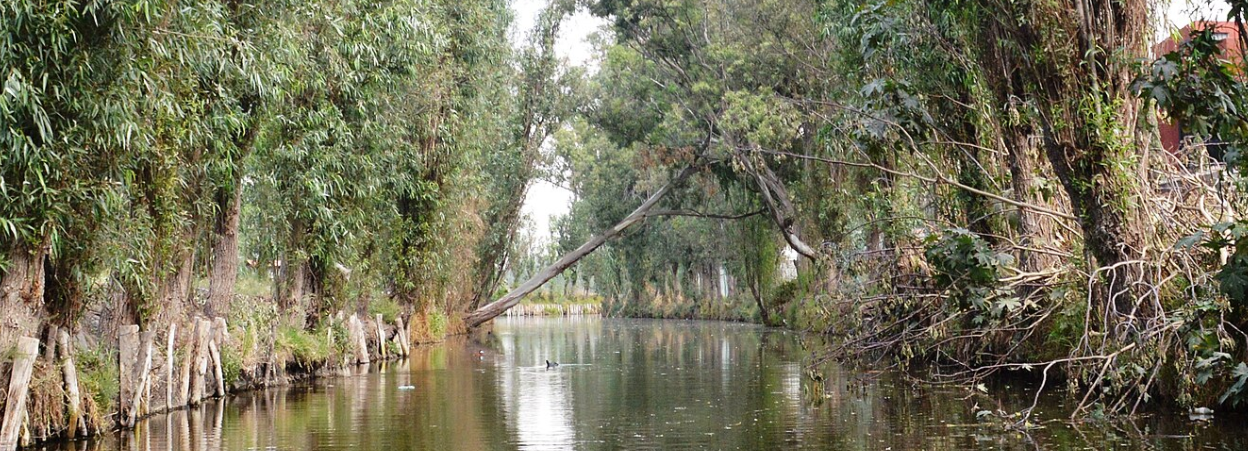Take to the Canals and Chinampas of Tlahuac!

The Tláhuac Heritage Tourism Route is a collective formed by Araceli Márquez Romo who brings more than ten years of experience working with the Tláhuac community. The collective was formed to empower the smaller towns, ejidos (land grants), indigenous communities, small landowners, service providers, artisans, and producers, chinamperos (farmers), and everyone interested in encouraging sustainable use of resources.
Araceli Márquez Romo meets visitors at the fountain in front of the San Pedro Tláhuac church. The remains of the ancient Mesoamerican ball court are nearby too. Before leaving, the history and general information about Tláhuac is provided. The tour lets participants learn about the chinampas, and ancient farming methods based on the chinampas.
Participants then leave to meet the chinampa farmers to learn about processes of seeding, transplanting, and harvesting. Atole is served and preparations are made to board the trajinera canal boat. Participants then learn to make Mextlapique, a recipe specific to the Chinampa towns of Tláhuac. Visitors can make up to 10 different recipes for salsas, ayocote beans, fruit and vegetable waters, handmade tortillas, moles, and preparations using local crops. The traditional hot drink El Calentito and pulque can also be sampled.
The presentation concludes with information on the amphibious axolotl and the wetland ecosystem.
This Community Tourism activity is highlighted because it includes:
1. Cultural heritage. The experience covers cultural heritage areas like the Santa Ana and San Juan neighborhoods, with buildings dating back to the 16th century, as well as the chinampa and lake areas. Participation by chinampa farmers and traditional cooks who share their knowledge of cultivation and preparation of recipes from the area.
2. Gender equality. The Tláhuac Tourist Route Collective team is primarily made up of Araceli Márquez, her daughters and three colleagues, who are all certified tour guides and promote female entrepreneurship in the field.
3. Inclusion and accessibility. The experience can be adapted for people with disabilities. People with vision and hearing impairments collaborate on the team.
4. Local economic benefits. The experience includes local food consumption, carried out directly with producers in the chinampas, as well as in local businesses in the area.
5. Decentralization. The experience is carried out in collaboration with chinampa farmers and trajineros from the region.
6. Sustainable social impact. The experience focuses on raising visitor awareness to avoid waste generation, and reusing water for washing and the use of water-less bathrooms.